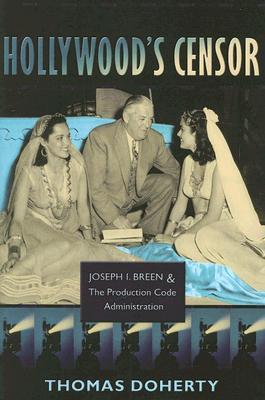What do you think?
Rate this book


440 pages, Hardcover
First published October 10, 2007
The Production Code was commonly, if misleadingly, called the Hays Code, after the head of the Motion Picture Producers and Distributors of America (MPPDA), but it was Joseph Breen who made the Code a reality, and was its true guiding spirit. Doherty does a great job of centering the Code in the Catholic (especially Irish Catholic) experience in America during in the early 20th Century. While the Code was intended to "clean up" movies for a general audience, and to prevent federal regulation, evidence for its Catholic roots is clear, especially once Breen took over the PCA. Breen's Catholic faith and Irish-American background was also not coincidentally important to the movie industry, dominated by five big studios and their "moguls." Many studio heads were Jewish, often of recent immigrant backgrounds, in a country where overt anti-Semitism was commonplace. Catholics too, faced vicious discrimination from the religious majority, and Doherty frames the MPPDA, the PCA, and related groups as a kind of defensive alliance to appease numerous constituencies, from bishops to big business, from congressmen to theater-goers. As Doherty notes, the Code was in a sense, "a Jewish-owned business selling Roman Catholic theology to Protestant America" (page 172). He might have added, that it did all of that while insisting that it was not actually doing that.
To support his account of the PCA, Doherty's book becomes a brief history of Hollywood films and explores the evolution of the medium through the Depression, World War II, the Cold War, shifting social values, and expanding Constitutional rights. The threads combined perfectly, and Doherty has a great grasp on the history of Hollywood and America during these decades. He also knows how to see the funny side of the entire saga, with wry comments on the sillier aspects of the Dream Factory and efforts to make it tow a moral line. The discussion of how Jane Russell in The Outlaw somehow became an existential crisis for the nation's moral guardians is particularly funny.